A Conversation between Paula Vogel and Blanka Zizka
Don Juan Comes Home from Iraq is the result of two years of development, beginning with a conversation between Paula Vogel and Blanka Zizka during a playwriting “boot camp” led by Ms. Vogel in January 2011, where they discovered a mutual love of the Weimar Era playwright Ödön von Horvath. This led to a decision, months later, to write a new play inspired by Horvath’s Don Juan Comes Home From the War. Months of conversations between the artistic collaborators followed and expanded to include encounters with veterans of Iraq and Afghanistan in interviews and playwriting workshops led by Ms. Vogel in Philadelphia, DC, and New York. The play was cast nearly a year ago, at a point when only a few pages of text existed, and the full script grew out of work with the actors in two workshops. During the December workshop, Paula and Blanka sat down for a conversation about the project.
Paula Vogel: We met in this workshop which was a very emotional weekend for me. I think at the end of the workshop I burst into tears. I couldn’t bear to say good-bye to the room. I just remember crying on my way out. Then we started talking and of course we knew of each other. And we discovered Von Horváth and we started to talk about this specific play.
Blanka Zizka: We started first to talk about the adaption, I remember that. And you were coming to the Wilma and you were on the train. You said, well we both were saying, it’s so much of its time. The twenties and thirties. Germany and Europe. And you said I think it’s Don Juan Comes Back from Iraq, and then it was like a spark. That was the beginning of it.
Paula: That’s right. We both got very excited about it in your office; that sometimes it’s better to pay homage by taking on the original challenge of bringing Don Juan to the present moment. Which is what Von Horváth did. Von Horváth brought Don Juan to the present moment in Germany but also by looking backwards a little bit, Don Juan after World War I. People still ask, are we adapting it? And in some ways we are.
Blanka: I think it’s more like a variation. I do think that it’s totally a new fresh play but it’s playing a little ping-pong. A play looking back like, “Hey, wink, wink” at Ödön von Horváth and, “This is my response.” It’s Paula. Paula’s response. I think that’s what’s happening, because I feel it’s very original, what we are getting at right now. So there’s a kind of exciting thing about this that I have never done before, or I’ve only done a long, long time ago, and that is announcing a play that’s going to happen that has not been written. You know, we in American theatre normally are waiting for the script. The script is our security, right? And we expect the script to be in such good shape that everybody— the literary manager, the artistic director, the managing director, the marketing director of the theatres—can say, “Yeah, this is a good script and we’ll put it on its feet.”
Paula: Right.
Blanka: And that’s what I’m starting to wrestle with. The American theatre has become so much about literature, and for me, and for you too, I know because you are always talking about plasticity, but theatre is more than that, and we have in many cases reduced the theatre to literature.
Paula: By doing that there’s become this kind of factory model of efficiency, which is the American not-for-profit, we’ve reduced the size of our ambitions. And when we look back at something like Don Juan or the classical cannon, these are writers who are writing unfinished work for a company, for the director, for the artist, for the village. And they will go back, in repertory, to that work over and over and over again. So the premise is that a script isn’t finished. A script is only finished by the process and the production. And that’s exciting.
Blanka: It’s an ongoing thing, it’s actually never quite finished because the next production can bring new things to it. New elements to it. I mean that is something that I have been really, really wrestling with in the last… five years. I believe that the segmentation of the work that happens in the theatre—which means the playwright writes a play in isolation, director picks it up, designers design, actors come last to the process—it’s really artistically not sustainable and it’s also tiresome. It becomes a job to put the play on, instead of actually having a clear idea as to why we are doing it, what we want to say with it as a company, as a collective, what we are taking on, what we are wrestling with, what we are encountering in our society that we want to talk about out loud with our audiences. I think with this play we are trying to encounter and explore these possibilities, but it’s risky. It’s risky because clearly, we are working basically as a dance company does.
Paula: This is a first pass, and for me it’s incredibly thrilling. First of all, it’s kind of this great challenge, the glove thrown down. But secondly, I think that as the American theatre has gone more to the factory—Model-T Ford, let’s just crank it out mode—my notion of theatre and all of the artists that I fell in love with when I was a young girl, the isolation has increased so much for writers because we are unattached to bodies and voices. And this collision, this wonderful creative collision of voices in the room—I’ve never in my life worked like this. It’s amazing.
It’s amazing how you conduct a workshop; you make us all write and we are not self-conscious about writing. Which I was afraid of the most when I took the first workshop with you.
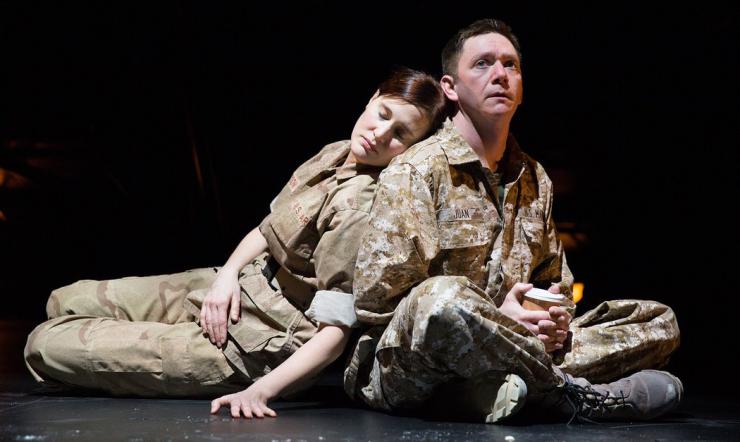
Blanka: It’s amazing. Considering how long you’ve been at it. For the first time in your life you’re writing for a company of actors.
Paula: For the first time I feel like a company member. And I’m working for people whose voices I’m hearing. I’m watching your work and your process and listening to the things that you respond with. I think this is the great thing for companies—it’s more of a call and response then a synthetic piece of work. You keep the multiple voices alive when you work this way. It’s so thrilling.
Blanka: I love also that you challenge the actors to become writers as well, because in that process of writing and the way that you set up the exercises, we reveal so much about ourselves and we get to know each other so quickly. It’s amazing how you conduct a workshop; you make us all write and we are not self-conscious about writing. Which I was afraid of the most when I took the first workshop with you. I was talking about my accent and the fact that I never studied English here in the United States. I never studied English even at school, and you told me, “Maybe you have different experiences from the person who speaks perfect English,” and I was like, “Okay.” And it really opened a door to something I had been keeping closed for such a long time, because I felt like I could not write because I am not the master of the English language.
Paula: But you are of your language.
Blanka: I got to understand that. That it has rhythms and sounds and melody, which are different. I am just loving it. That this is something that you give to everybody in the company, you know, and it’s not judgmental, or about being the best writer, but about actually finding your music.
Paula: Right, right. I thought it was amazing yesterday that everyone around the table offered this beautiful, transparent voice, and put it into the room. And then I walk into the room and I see you and the company and you’ve stripped away the inhibitions about the body. You’ve stripped away the inhibitions about movement. And there’s a transparency about the body and the voice. And to me as a writer, that becomes a challenge, how can I try to match that transparency with word? Because I watch all of you and I think, “I don’t think I can do it.” But I think if I actually spent the time with you, I would get some sense of movement back in my body.
Blanka: So about five years ago I realized that my aesthetic has been changing, I think starting somewhere around Eurydice, the play by Sarah Ruhl, and going into Macbeth and Angels in America, Our Class, and Scorched by Wajdi Mouawad that I started to work with these open spaces and really focus on actors’ presence on stage. But I realized that my actors don’t have the training to fill the space. They are very much in their faces and their hands. That’s the naturalism that we have developed over the last thirty years in American theatre, and when you open the space, like some of Pina Bausch’s work, the actors don’t have the power inside themselves and in their bodies to fill the space. I thought, we need to change that. I started to work with Jean-Rene Toussaint and Theodoros Terzopoulos, both are European directors and teachers who are committed to bringing the focus back into the body and actually activating the body’s imagination, so you are not imagining everything through your mind, which reduces everything right away, because you are just then projecting your own experiences onto the character instead of the character actually giving you possibilities to grow and become larger than yourself or bigger than yourself or different than what you know. And I think those are possibilities, because the body has memories that are ancient, they are old, and they can come out through these exercises. And so by doing these workshops, which we have been able to do through the Wilma—and actually we are paying salaries to actors to do these workshops because they are professionals—I am developing a larger company around the Wilma and creating a language. So when we go into production, we’ll have a group of actors who have already worked with each other and know what my aesthetic is and what I’m after. It’s kind of why we started the company earlier. We don’t usually hire people a year before a production goes into rehearsal and then we take them through the workshops which, sometimes, don’t have anything to do with the text—it’s just about the exercises.
Paula: Right. And then there’s the extraordinary luxury of knowing that we figured out the size of the company, the roles that we were going to use, and through the past year figuring out the basic structure of what our story is going to be. So through the workshops that I’ve been able to see, we actually created the acting company for this piece before a word was written. Which has been an extraordinary shortcut for me.
Blanka: It kind of creates a frame doesn’t it?
Paula: It does. It gives a great deal of freedom having that frame. And the other thing that’s been really extraordinary is the way that I actually get to know people. This may seem strange but once I’ve heard someone’s writing I remember them. People get freaked out by this because they’ll have written something in a workshop when we were together twenty years ago and I’ll bring it up. To me that’s just voice. And it changes my mind. It changes the synapses in my brain. So the fact that we’ve all been able to start with interviews, start with talking with people, we went first to Washington, DC, we did our first workshop with veterans around the table and now in Philadelphia. It has been an incredible luxury, I think for us and our conversations, and a generosity from these veteran writers to share that.
Blanka: I was so worried at the very beginning, how do I talk to veterans? Because first before we started to talk about this play, I actually was not paying attention to the veterans almost whatsoever. And that’s something that I’ve learned—that only 1 percent of our population goes to war and they really are carrying the burden and they come back and nobody gives a damn and very few people actually deal with it. Stories of the veterans and what they had to go through and how they will come back just to live life and how they have to go through that process, it was not on my mind whatsoever.
Paula: So we’ve been participating with veterans in these workshops. Did you have an initial sense of being outside the experience or how to approach veteran experience?
Blanka: So, last year around this time I went to this workshop with Warrior Writers, and my first fear was that I was so isolated from their experience that there would be no bridge between us, between my experience and theirs. What was amazing and what happened with the writing workshops that you started as well, is that through the work we were all able to write about our own dramas. I realized, “Oh my god, being an emigrant my life is also filled with discontinuity.” And in a different way, veterans’ lives were also about leaving one place and going to another place, the normal becomes abnormal and abnormal becomes normal.
Paula: Right, right.
Blanka: And these exercises about estrangement that you were giving us were really revealing and connecting our experiences, and suddenly it was about us as creative people who are writing. And through the work we found connections that I think would be very difficult to find in a normal conversation. So that I found, again, how in art we get people together and start working on something together and suddenly you realize, “Okay, we are all the same underneath. Underneath all these experiences. We all have desires. We all want something. We all have losses. And we can write about it and start to understand each other.” And that was kind of amazing, this process is all amazing. And I love that you are also bringing actors into it and making them write.
Paula: What’s also been thrilling for me, in particular, is we’ve done a couple of what I call bake offs. In these workshops we’ve been writing short plays in an hour. So we wrote a St. Joan together with actors and veterans and we wrote the Swan Play about Leda and the Swan. And one of the things that I’ve been talking to the veterans writers about I can see on everyone’s faces—how much joy there is when you hear your words picked up by an actor and to see your words become flesh in the room. So I just remember that first sensation watching the veterans directing their own scenes and watching it come to life. It’s that kind of odd paradoxical balancing act—that you can write and talk about the most fearful thing and yet there’s a vibrancy and joy when you give it over to actors and they lift it up. There’s a vibrancy.
And one of the things that I’ve been talking to the veterans writers about I can see on everyone’s faces—how much joy there is when you hear your words picked up by an actor and to see your words become flesh in the room.
Blanka: But what is also amazing is the next step. When the veterans became actors. I was shocked because suddenly these men and women—who looked to be in their mid-thirities—they really revealed their youthfulness and playfulness.
Paula: This is always amazing to me. Stripping off the inhibition. Stripping off the age and just plunging in. I feel like we should cast them all. It’s been profoundly moving. But you know it brings me back to two things I really need to be able to say and really feel, and this project is no different. I will only understand a tiny smidgeon of experience. I’m a civilian. I can’t represent it. I have no right to represent it. But the fact that I want to understand it is sort of my primary charge. There are two things that I always say: One is, “I’m sorry because I will always get it wrong.” And this is true if we decided to work on an adaptation of Ajax or an adaptation of Shakespeare or an adaptation of anything, do you know what I mean?
Blanka: I think theatre is not the truth.
Paula: It’s not the truth! That’s right. It’s not the truth. We’re not going to be the perfect mirror. Hopefully though, again, what I hope is that there’s some lifting of the experience and a vibrancy that we can give back. And the second thing is to say, “Thank you.” “I’m sorry, and thank you.” Because I think the veterans we’ve encountered and I’m thinking about all of the time that these veterans have given us, to go back and revisit their experiences and to tell us is incredible generosity.
Blanka: The other thing about this process I find as a director exciting is to be dealing with the text so early. It’s exciting that we can actually talk about the plasticity of the possible performance at this early stage and that you can actually think about it as a writer, the world that we will be in. Which is not a naturalistic world.
Paula: Right, and I’m trying, and hopefully achieving this, I want to be your scribe. I want to be a scribe to the company members. I want to be a scribe to Walter’s [The Wilma’s Literary Manager/Dramaturg] conversations and all of the incredible material that you and Walter have created. It makes me feel lighter because I’m scribing and responding to your impulse.
Blanka: It’s a real collaboration that I haven’t experienced in a long time.
Paula: Likewise. Never. Which is great.

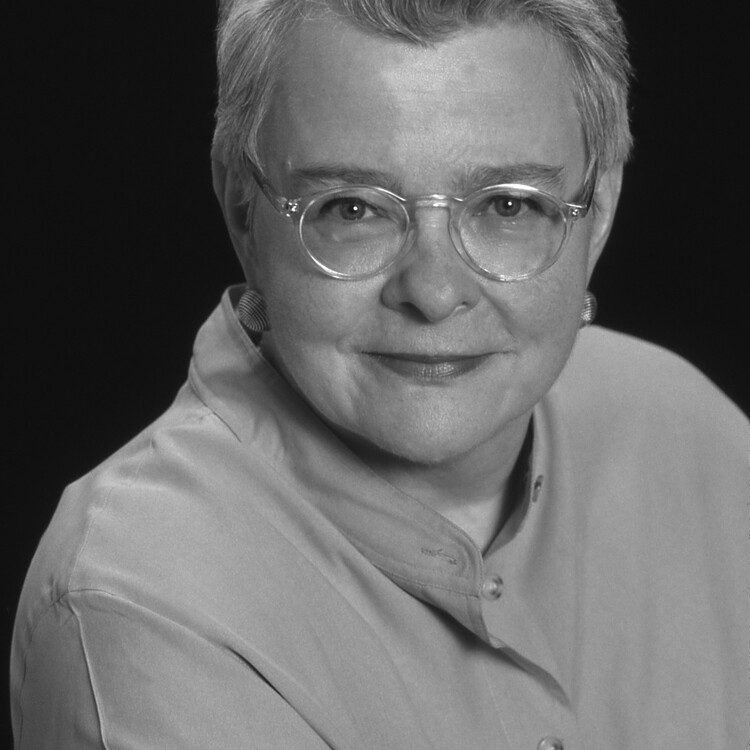
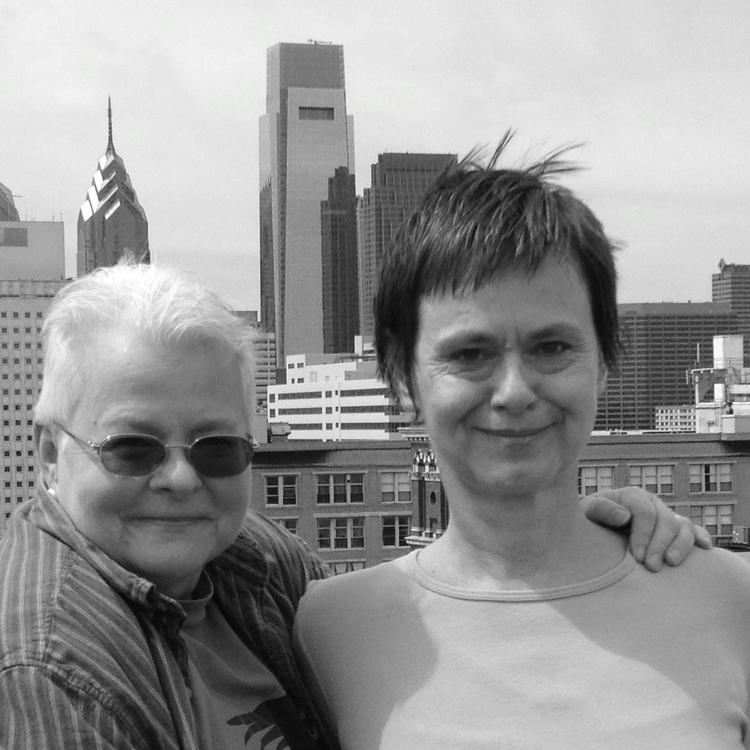
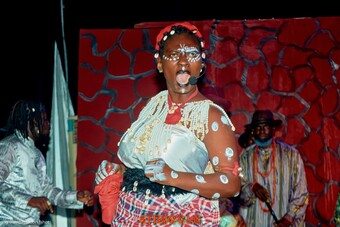


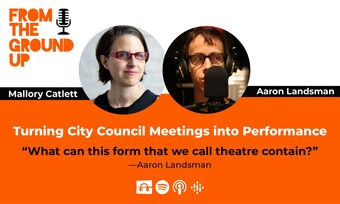



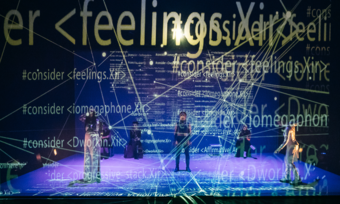


Comments
The article is just the start of the conversation—we want to know what you think about this subject, too! HowlRound is a space for knowledge-sharing, and we welcome spirited, thoughtful, and on-topic dialogue. Find our full comments policy here